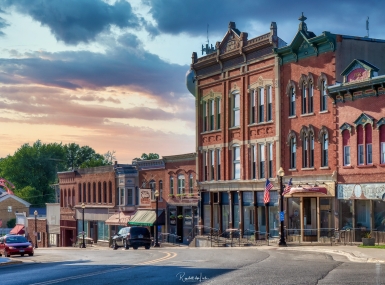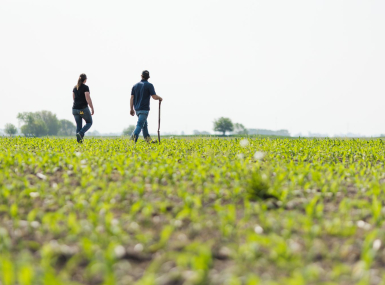Rural re-lending program raises concerns for NACo
Upcoming Events
Related News
NACo supports Uplift America, concerned about implementation
The Department of Agriculture’s (USDA) Rural Housing Service formally announced the creation of a new community facilities relending program called “Uplift America,” July 6.
The program was created through an interim rule for FY16 that amended the Community Facility Direct Loan program to enable the agency to provide loans to qualified re-lenders serving persistent or high-poverty counties.
While NACo supports the overall goal of the program, its implementation as outlined in the interim rule raises some concerns for the association.
For additional questions on the Community Facilities Direct Loan Program or Uplift America, please contact Arthur Scott, associate legislative director at ascott@naco.org or 202. 942.4230. More information on the Uplift America program can be found at www.UpliftAmerica.org.
Uplift America is designed to increase access to capital in hard to reach places. Through the program, USDA hopes to move investments deeper into rural America by allowing local re-lenders to leverage federal resources, bank financing and private grants in targeted low-wealth areas.
Specifically, the program requires re-lenders to have at least 30 percent of their portfolio — or at least three years of experience — serving persistent- or high-poverty counties. By targeting such counties, the program will focus much of its attention in southern Appalachia, the Texas-Mexico border and the rural South.
Uplift America will provide low-interest loans to community lenders with experience financing infrastructure investments in rural communities to help counties fund projects such as health clinics, libraries, schools, municipal buildings and food banks.
The program is expected to breathe new life into the Community Facility Direct Loan (CFDL) program. Since 2013, the CFDL program has been authorized at $2.2 billion — a major appropriations victory for rural counties. However, almost $500 million remains in the CFDL program for FY16. USDA Rural Housing administrators must move fast to invest the money in rural communities or face potential funding cuts to the program.
While NACo is a staunch advocate for rural development funding and the CFDL program, there are major concerns over the program’s re-lending qualifications. Currently, the program requires re-lenders to be a private or non-governmental agency. Tribal entities are the only exception to this requirement. The interim rule prohibits local government entities such as economic development authorities or regional planning and development organizations from serving as re-lenders despite a long history of successful financing operations.
Additionally, while interest rates between USDA and re-lenders are capped at 2.75 percent, the contracted rate between re-lenders and end users — often county governments — are not limited by the ruling. Without specific caps on interest rates to end-users, significant administrative and user fees could be passed along on financing critical infrastructure in rural counties.
NACo continues to work with the Department of Agriculture to promote the CFDL program while seeking a path forward that allows counties to play a role in strengthening the critical funding provided by the program.
Attachments
Related News

Senators introduce bipartisan UPGRADE Act to support small and rural public water systems
On December 15, Sens. Lisa Blunt Rochester (D-Del.) and Roger Wicker (R-Miss.) introduced the Unincorporated Partnerships for Grant Resources, Assistance, and Drinking Water Enhancements (UPGRADE) Act (S. 3465), a bipartisan bill that would strengthen federal support for small public water systems and helps unincorporated communities access clean and affordable water.

House reintroduces bipartisan legislation to level playing field for rural communities
House reintroduced the Rural Partnership and Prosperity Act, bipartisan legislation intended to advance economic development in rural counties and overcome barriers to obtaining federal funding and resources.

White House and U.S. Department of Agriculture announce $12 billion in aid to farmers
On December 8, President Trump and U.S. Secretary of Agriculture Brooke Rollins announced a $12 billion farm aid package to help farmers manage market disruptions and rising production costs.